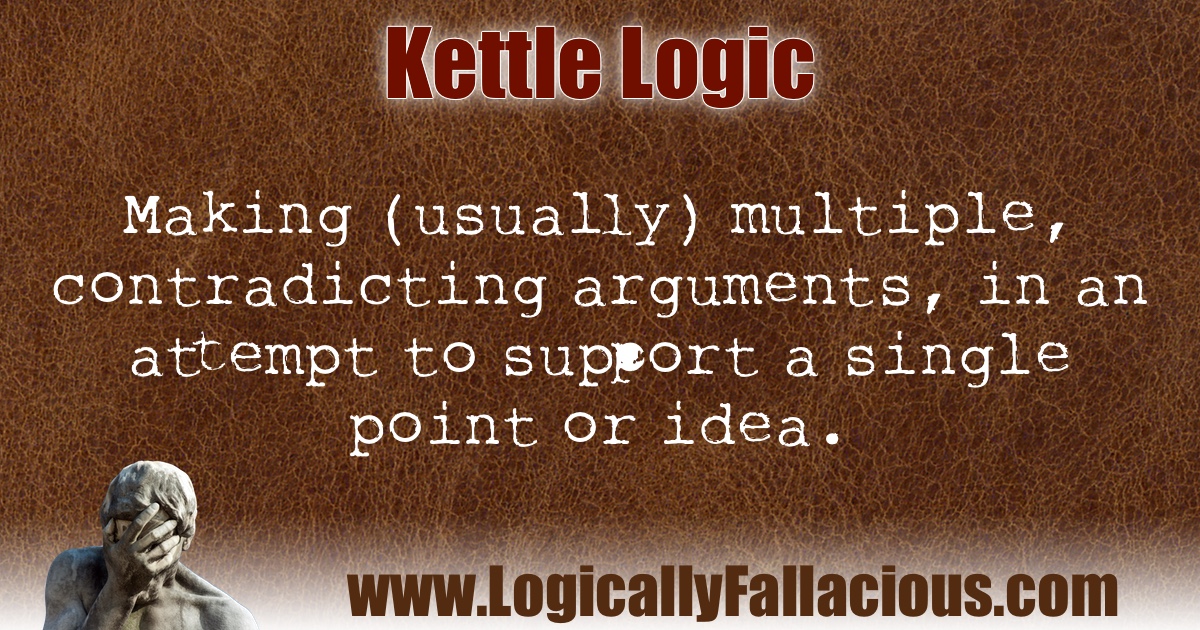Description: Making (usually) multiple, contradicting arguments, in an attempt to support a single point or idea.
Logical Form:
Statement 1 is made.
Statement 2 is made and contradicts statement 1.
Statement 3 is made and contradicts statement 1 or 2
... etc.
Example #1:
In an example used by Sigmund Freud in The Interpretation of Dreams, a man accused by his neighbor of having returned a kettle in a damaged condition offered three arguments:
That he had returned the kettle undamaged;
That it was already damaged when he borrowed it;
That he had never borrowed it in the first place.
Explanation: Each statement contradicts the one before. If it was already damaged, how did he return it undamaged? If he never borrowed it, how was it already damaged when he borrowed it?
Example #2:
I don't believe in God. One reason is that I think he is evil. And by the way, there is no such thing as "evil;" it is just our evaluation of what we believe is wrong.
Explanation: There are multiple statements here that all contradict, stemmed from the idea that the person does not believe in God. If he or she does not believe in God, how can he or she think God is evil? And if there is no such thing as evil, how can something be evil?
Exception: If one acknowledges that their previous argument has been defeated (explicitly or implicitly), and they make a new argument, this would be more like moving the goalposts.
Tip: If you are trying to be funny, kettle logic can be a great tool. In the movie “Philomena,” Steve Coogan’s character, Martin Sixsmith, leaves a church ceremony early. When asked why he says, “I don’t believe in God, and I think he knows.”

References:
Freud, S. (1913). The Interpretation of Dreams. Macmillan.
Questions about this fallacy? Ask our community!